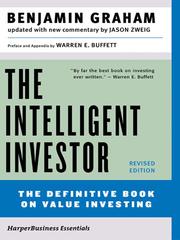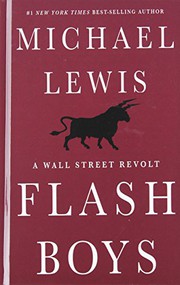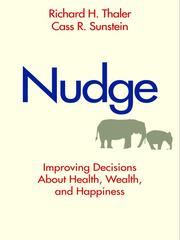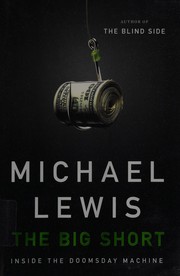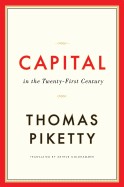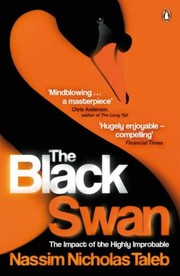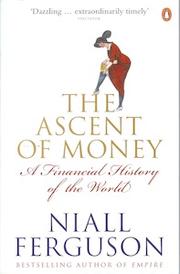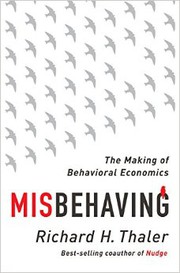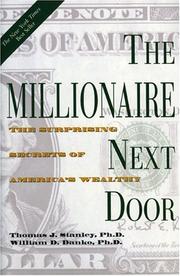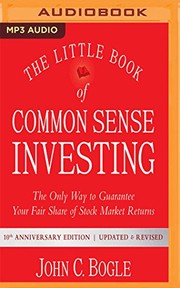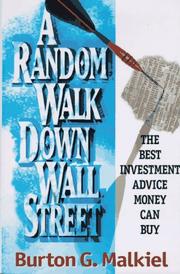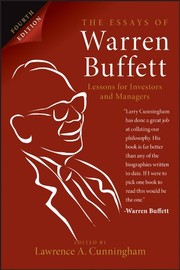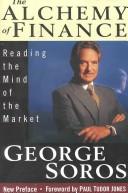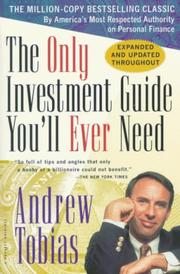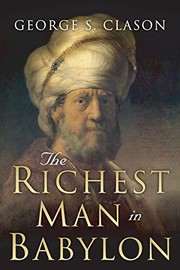Are you looking to expand your financial knowledge and improve your money management skills? Look no further! We’ve curated a list of the 20 best books about finance that are guaranteed to help you navigate through the complex world of money. Whether you’re a novice or an expert in the field, these finance books will provide you with valuable insights, strategies, and tips to help you make informed decisions and achieve your financial goals. From personal finance to investing and entrepreneurship, there’s something for everyone in this carefully selected collection. Let’s dive into the world of finance and discover the top books that will empower you to take control of your financial future!
Contents
- 1 20 Best Finance Books
- 2 The Intelligent Investor
- 3 Thinking, Fast and Slow
- 4 Flash Boys
- 5 Nudge: Improving Decisions About Health, Wealth, and Happiness
- 6 The Big Short
- 7 Freakonomics: A Rogue Economist Explores the Hidden Side of Everything
- 8 Capital in the Twenty-First Century
- 9 The Black Swan: The Impact of the Highly Improbable
- 10 The Ascent of Money: A Financial History of the World
- 11 Misbehaving: The Making of Behavioral Economics
- 12 Liar’s Poker
- 13 The Millionaire Next Door
- 14 The Little Book of Common Sense Investing
- 15 The Warren Buffett Way
- 16 A Random Walk Down Wall Street
- 17 The Essays of Warren Buffett: Lessons for Corporate America
- 18 The Alchemy of Finance
- 19 The Four Pillars of Investing
- 20 The Only Investment Guide You’ll Ever Need
- 21 The Richest Man in Babylon
- 22 Final Thoughts on Best Finance Books
- 23
20 Best Finance Books
The Intelligent Investor
by Benjamin Graham
The Intelligent Investor is a classic book on finance by Benjamin Graham, known as the father of value investing. This timeless guide provides valuable insights on how to navigate the unpredictable world of investing. Graham emphasizes the importance of adopting a long-term approach, focusing on the intrinsic value of a stock, and avoiding emotional decision-making. He introduces the concept of Mr. Market, an allegory for the stock market’s unpredictable behavior, and encourages investors to take advantage of market fluctuations rather than being swayed by them.
Through practical advice and real-life examples, Graham teaches readers how to analyze financial statements, identify undervalued stocks, and build a diversified investment portfolio. He also discusses the psychological aspects of investing and the importance of maintaining a margin of safety. The Intelligent Investor is a must-read for anyone looking to gain a deeper understanding of the principles of value investing and develop a sound strategy for long-term financial success.
Thinking, Fast and Slow
by Daniel Kahneman
Thinking, Fast and Slow by Daniel Kahneman is a captivating exploration of the two systems that drive the way we think: the fast, intuitive and emotional system, and the slow, deliberate and logical system. Kahneman, a renowned psychologist and Nobel Prize winner, delves into the fascinating world of human decision-making, shedding light on the cognitive biases and errors that often lead us astray. This thought-provoking book offers deep insights into the workings of the human mind, revealing how our mental shortcuts and unconscious biases can impact our judgment and decision-making in both personal and professional contexts.
Whether you’re a psychology enthusiast, a business professional, or simply curious about the inner workings of the mind, this book is a must-read. With its engaging storytelling and compelling research, Thinking, Fast and Slow offers valuable lessons that can be applied to a wide range of fields, from psychology and behavioral economics to business and finance. It’s a finance book that goes beyond numbers, providing a rich understanding of the human factor in decision-making.
Flash Boys
by Michael Lewis
Flash Boys by Michael Lewis is a captivating book on finance that delves into the world of high-frequency trading and the impact it has on the stock market. Lewis, known for his engaging storytelling, follows the experiences of a group of Wall Street outsiders who uncover the controversial practices of high-frequency traders. These traders use advanced technology to gain an unfair advantage, exploiting the system and leaving ordinary investors at a disadvantage.
With his signature blend of investigative reporting and compelling narrative, Lewis exposes the complexities of the financial world and the individuals who are determined to challenge the status quo. Through the stories of the protagonists, the reader gains insight into the intricate web of the stock market and the behind-the-scenes operations that affect the everyday investor. Flash Boys is not just a book about finance; it’s a gripping tale of ambition, deception, and the pursuit of justice in the world of high-stakes trading.
Nudge: Improving Decisions About Health, Wealth, and Happiness
by Richard H. Thaler and Cass R. Sunstein
Nudge: Improving Decisions About Health, Wealth, and Happiness by Richard H. Thaler and Cass R. Sunstein is a groundbreaking book on behavioral economics and its application to decision-making. The authors explore how small, subtle changes, or “nudges,” can influence people’s choices in positive ways. This book is not just a book about finance; it delves into various aspects of decision-making, including health and happiness, and how behavioral economics can be used to improve outcomes in these areas.
Thaler and Sunstein provide practical examples of how nudges can be used to help individuals make better choices when it comes to saving for retirement, investing, and managing their finances. They also discuss how nudges can be applied to improve health outcomes and promote overall well-being. The book challenges traditional economic theories and offers a fresh perspective on how people make decisions. Nudge is a must-read for anyone interested in behavioral economics, decision-making, and improving outcomes in various areas of life.
The Big Short
by Michael Lewis
The Big Short by Michael Lewis is a captivating finance book that delves into the world of the 2008 financial crisis. Lewis explores the events leading up to the collapse of the housing market and the subsequent global economic turmoil, through the eyes of a few individuals who saw the impending disaster and bet against the market. The narrative follows these maverick investors as they navigate the complexities of the finance industry and uncover the flaws and corruption within the system.
With his signature storytelling style, Lewis brings to life the characters and events that shaped the crisis, shedding light on the greed, ignorance, and recklessness that led to the downfall. The book offers a thought-provoking and insightful analysis of the finance industry, making it a must-read for anyone interested in understanding the intricacies of the financial world. The Big Short is a gripping and informative read that provides a compelling look into the inner workings of the finance industry and the catastrophic consequences of its failures.
Freakonomics: A Rogue Economist Explores the Hidden Side of Everything
by Steven D. Levitt and Stephen J. Dubner
Freakonomics: A Rogue Economist Explores the Hidden Side of Everything is a captivating book on economics by Steven D. Levitt and Stephen J. Dubner. This unconventional finance book delves into the hidden, unexpected connections between various social and economic phenomena. The authors use their expertise to uncover fascinating insights, challenging readers to think differently about the world around them.
Levitt and Dubner explore a wide range of topics, from the economics of drug dealing to the impact of parenting on a child’s success. They use data and statistical analysis to uncover surprising correlations, shedding light on the hidden forces that shape our lives. Through their engaging storytelling and thought-provoking analysis, they encourage readers to question conventional wisdom and look at the world through an economic lens.
Freakonomics is a thought-provoking and entertaining exploration of the hidden side of economics, offering readers a fresh perspective on the forces that drive our society and economy.
Capital in the Twenty-First Century
by Thomas Piketty
Capital in the Twenty-First Century by Thomas Piketty is a groundbreaking book on finance that explores the dynamics of wealth and inequality. Piketty delves into centuries of economic data to uncover the driving forces behind the unequal distribution of capital and the implications for society. He argues that the accumulation of wealth is outpacing economic growth, leading to increasing inequality and social instability.
Piketty’s analysis is both comprehensive and thought-provoking, challenging conventional wisdom about the dynamics of capitalism and the role of government in addressing inequality. His writing is accessible and engaging, making complex economic concepts understandable for a wide audience. He also offers insights into the historical patterns of wealth distribution and proposes policy solutions to address the growing wealth gap.
Overall, Capital in the Twenty-First Century is a must-read for anyone interested in understanding the complexities of modern economies and the implications of wealth inequality. It is a seminal finance book that has sparked important conversations about the future of capitalism and the distribution of wealth.
The Black Swan: The Impact of the Highly Improbable
by Nassim Nicholas Taleb
The Black Swan: The Impact of the Highly Improbable by Nassim Nicholas Taleb is a thought-provoking book that explores the concept of unpredictable events and their profound impact on the world. Taleb uses the metaphor of the black swan to represent rare and unexpected occurrences that have significant consequences, challenging traditional notions of predictability and causality.
Through engaging storytelling and insightful analysis, Taleb discusses how individuals and societies often underestimate the likelihood and impact of these black swan events, particularly in the realm of financial markets. The book delves into the implications of such events on decision-making, risk management, and the fragility of systems and institutions.
With its compelling narrative and thought-provoking ideas, The Black Swan is a must-read for anyone interested in understanding the complexities of the unpredictable and its implications for the world of finance and beyond. This finance book will leave readers with a newfound appreciation for the role of randomness and uncertainty in shaping our lives and the world around us.
The Ascent of Money: A Financial History of the World
by Niall Ferguson
The Ascent of Money: A Financial History of the World by Niall Ferguson is a captivating book about finance that takes readers on a journey through the evolution of money and its impact on global history. Ferguson delves into the origins of banking, the development of stock markets, the rise of insurance, and the influence of currencies on international trade and power. Through engaging storytelling and meticulous research, he demonstrates how finance has shaped the course of human civilization, from the ancient civilizations to modern-day globalization. Ferguson’s exploration of economic systems and their impact on societies provides readers with a deeper understanding of the world we live in today. Whether you are a history buff or a finance book enthusiast, The Ascent of Money offers valuable insights into the role of money in shaping the world we live in.
Misbehaving: The Making of Behavioral Economics
by Richard H. Thaler
Misbehaving: The Making of Behavioral Economics by Richard H. Thaler is an insightful and engaging book about the field of behavioral economics. Thaler, a renowned economist, takes readers on a journey through the development of this discipline, offering a behind-the-scenes look at how traditional economic theories often fail to account for human behavior.
Through a combination of personal anecdotes, real-world examples, and cutting-edge research, Thaler challenges the conventional wisdom of rational economic decision-making and explores the irrational tendencies that drive our financial choices. This book on finance offers a fresh perspective on how individuals and markets behave, shedding light on the psychological factors that influence economic decision-making.
Thaler’s writing style is accessible and entertaining, making complex economic concepts understandable for a wide audience. Whether you’re a seasoned economist or simply interested in understanding the quirks of human behavior in the realm of money and markets, this finance book is sure to captivate and enlighten you.
Liar’s Poker
by Michael Lewis
Liar’s Poker, written by Michael Lewis, is a captivating book about finance and the cutthroat world of Wall Street in the 1980s. Lewis takes the reader on a wild ride through the high-stakes world of bond trading, providing an insider’s look at the greed, ambition, and excess that defined the era. The book follows Lewis’s own experiences as a bond salesman at Salomon Brothers, one of the most powerful investment banks at the time, and offers a candid and often humorous portrayal of the industry’s larger-than-life characters and outrageous antics.
With a sharp wit and keen insight, Lewis exposes the darker side of the finance world, shining a light on the unscrupulous behavior and ruthless competition that drove the industry’s success. Liar’s Poker is a riveting and eye-opening read that provides a unique and entertaining perspective on the world of high finance, making it a must-read for anyone interested in the inner workings of Wall Street and the forces that shape the financial markets.
The Millionaire Next Door
by Thomas J. Stanley and William D. Danko
The Millionaire Next Door is a well-known book on finance that challenges the common perceptions of wealth in America. Written by Thomas J. Stanley and William D. Danko, this eye-opening finance book reveals the surprising truth about millionaires: they are often the unassuming people living next door, not the flashy spenders we see in the media. The authors conducted extensive research and interviews to uncover the habits and characteristics of millionaires, and they found that most of them live frugally, budget carefully, and invest wisely.
The book about finance also emphasizes the importance of hard work, perseverance, and discipline in achieving financial success. It debunks the myth that high income equals wealth, and instead highlights the significance of living below one’s means and building wealth through smart financial choices. The Millionaire Next Door offers practical insights and actionable advice for anyone looking to improve their financial situation and build long-term wealth. It’s a must-read for anyone interested in personal finance and wealth-building strategies.
The Little Book of Common Sense Investing
by John C. Bogle
The Little Book of Common Sense Investing by John C. Bogle is a must-read for anyone looking to navigate the world of investing with confidence. This insightful book on finance offers a straightforward approach to achieving long-term investment success without the frills and complexities that often accompany the world of finance. Bogle, the founder of Vanguard Group and a pioneer in the world of index investing, presents a compelling case for the power of low-cost index funds and the folly of trying to beat the market through active management. With clear and compelling arguments, Bogle demystifies the world of investing, making it accessible to all readers, from beginners to seasoned investors. Whether you’re just starting to dip your toes into the world of investing or looking to refine your strategy, this finance book provides timeless wisdom and practical advice that will help you build a solid investment portfolio for the long haul.
The Warren Buffett Way
by Robert G. Hagstrom
The Warren Buffett Way by Robert G. Hagstrom is a captivating finance book that delves into the investment philosophy and strategies of the legendary investor, Warren Buffett. This insightful book provides a comprehensive overview of Buffett’s approach to investing, highlighting his emphasis on value investing, long-term perspective, and emphasis on fundamental analysis. Hagstrom explores the key principles that have guided Buffett’s success, offering valuable insights and practical advice for investors looking to emulate his methods.
Through a combination of in-depth research and real-life examples, The Warren Buffett Way offers a compelling look at the mindset and strategies that have made Buffett one of the most successful investors in history. Whether you are a seasoned investor or just starting out, this book provides a wealth of knowledge and wisdom that can help you navigate the complex world of investing and achieve long-term financial success. If you are looking for a captivating and informative book about finance, The Warren Buffett Way is a must-read.
A Random Walk Down Wall Street
by Burton G. Malkiel
A Random Walk Down Wall Street is a classic book about finance that takes readers on a journey through the world of investing, providing valuable insights into the dynamics of the stock market. Burton G. Malkiel explores the concept of the ‘random walk’ theory, which suggests that stock prices move randomly and are unpredictable. He also delves into the various investment strategies, from technical analysis to fundamental analysis, and even the controversial topic of market timing. Malkiel provides readers with practical advice on how to build a diversified portfolio and how to navigate the ups and downs of the market. This finance book is not just for the seasoned investor, but also for anyone looking to gain a better understanding of the complexities of the financial world. With its engaging and informative style, A Random Walk Down Wall Street is a must-read for anyone interested in learning about the intricacies of investing.
The Essays of Warren Buffett: Lessons for Corporate America
by Warren Buffett and Lawrence A. Cunningham
The Essays of Warren Buffett: Lessons for Corporate America, co-authored by Warren Buffett and Lawrence A. Cunningham, is a revered finance book that offers invaluable insights into the mind of the legendary investor. This collection of Buffett’s letters to shareholders of Berkshire Hathaway provides a rare glimpse into his investment philosophy and business acumen. The book distills Buffett’s wisdom on a range of topics, from corporate governance and executive compensation to accounting policies and mergers and acquisitions. Through his candid and insightful essays, Buffett imparts timeless lessons on value investing, risk management, and the importance of long-term thinking in the corporate world. Cunningham’s commentary and annotations further enhance the reader’s understanding of Buffett’s principles and the application of his teachings in the context of corporate America. Whether you’re an aspiring investor, a seasoned business professional, or simply curious about the mindset of one of the world’s most successful entrepreneurs, this book about finance is a must-read.
The Alchemy of Finance
by George Soros
The Alchemy of Finance by George Soros is a captivating exploration of the intricacies of the financial world. This groundbreaking book about finance takes readers on a journey through Soros’s personal experiences in the markets, as well as his innovative theories on the nature of financial markets. Soros delves into the psychological and emotional factors that influence market behavior, providing valuable insights for investors and traders alike. Through his concept of reflexivity, Soros challenges traditional economic theories and offers a fresh perspective on the dynamics of the finance book. His unique blend of philosophy, economics, and practical wisdom makes this book a must-read for anyone interested in understanding the complexities of the financial world. With its thought-provoking ideas and real-world examples, The Alchemy of Finance is a timeless classic that continues to inspire and enlighten readers to this day.
The Four Pillars of Investing
by William J. Bernstein
The Four Pillars of Investing by William J. Bernstein is a comprehensive book on finance that provides readers with a solid foundation for understanding and navigating the world of investment. Bernstein outlines the four essential elements of successful investing, which he refers to as the “four pillars”: theory, history, psychology, and business. Through a combination of academic research, real-world examples, and practical advice, Bernstein offers readers a clear and accessible guide to building and maintaining a profitable investment portfolio. This book about finance is perfect for both novice investors looking to build a strong financial future and experienced professionals seeking to deepen their understanding of the market. Bernstein’s straightforward and engaging writing style makes complex financial concepts easy to grasp, making this finance book a must-read for anyone looking to take control of their financial wellbeing.
The Only Investment Guide You’ll Ever Need
by Andrew Tobias
The Only Investment Guide You’ll Ever Need by Andrew Tobias is a classic finance book that provides readers with a comprehensive and accessible guide to building wealth and achieving financial security. With a witty and engaging writing style, Tobias covers a wide range of topics including investing, saving, retirement planning, and real estate. He offers practical advice on how to navigate the complex world of finance and make informed decisions about money management.
Readers will find valuable insights on how to avoid common investing pitfalls, minimize taxes, and grow their wealth over time. Tobias also addresses the emotional and psychological aspects of money, offering guidance on how to overcome financial anxiety and make sound financial decisions.
Whether you’re a novice investor or a seasoned financial expert, this book about finance is a must-read for anyone looking to take control of their financial future. With its timeless wisdom and humorous approach, The Only Investment Guide You’ll Ever Need is a timeless resource for anyone seeking to improve their financial literacy and achieve long-term financial success.
The Richest Man in Babylon
by George S. Clason
The Richest Man in Babylon is a timeless classic that offers valuable financial wisdom through a collection of parables set in ancient Babylon. Written by George S. Clason, this book on finance provides practical advice on how to grow wealth and achieve financial success. Through engaging stories and timeless principles, readers are taught the importance of saving, investing, and managing money wisely. The book about finance emphasizes the significance of taking control of one’s financial future and making sound decisions to secure a prosperous life. With its easy-to-understand lessons and relatable anecdotes, The Richest Man in Babylon is a must-read for anyone looking to improve their financial literacy and build a solid foundation for their financial well-being. Whether you are just starting your financial journey or seeking to enhance your money management skills, this finance book offers invaluable insights that are as relevant today as they were centuries ago.
Final Thoughts on Best Finance Books
Exploring the world of Finance through literature can be both educational and entertaining. The 20 best books about finance offer valuable insights into the intricacies of the financial world, making them essential reads for anyone looking to expand their knowledge in this field. Whether you’re a finance professional or simply interested in learning more about money management, these books provide the perfect opportunity to delve into the complex and fascinating world of finance.
Which book about Finance is best?
The best book on Finance can vary with personal preference, but three widely recommended titles are:
- The Intelligent Investor by Benjamin Graham,
- Thinking, Fast and Slow by Daniel Kahneman,
- Flash Boys by Michael Lewis.
Each offers valuable insights and could be a great starting point.
What are the best books to learn about Finance?
For those looking to learn about Finance, there is a wealth of literature that can provide a comprehensive understanding of the subject. Some of the most highly recommended books include:
- The Intelligent Investor by Benjamin Graham,
- Thinking, Fast and Slow by Daniel Kahneman,
- Flash Boys by Michael Lewis,
- Nudge: Improving Decisions About Health, Wealth, and Happiness by Richard H. Thaler and Cass R. Sunstein,
- The Big Short by Michael Lewis,
- Freakonomics: A Rogue Economist Explores the Hidden Side of Everything by Steven D. Levitt and Stephen J. Dubner,
- Capital in the Twenty-First Century by Thomas Piketty,
- The Black Swan: The Impact of the Highly Improbable by Nassim Nicholas Taleb,
- The Ascent of Money: A Financial History of the World by Niall Ferguson,
- Misbehaving: The Making of Behavioral Economics by Richard H. Thaler
These books offer a range of perspectives on Finance, covering various aspects and approaches to the subject.
What are the best books about Finance?
The best books about Finance are:
- The Intelligent Investor by Benjamin Graham,
- Thinking, Fast and Slow by Daniel Kahneman,
- Liar’s Poker by Michael Lewis,
- The Millionaire Next Door by Thomas J. Stanley and William D. Danko,
- The Black Swan: The Impact of the Highly Improbable by Nassim Nicholas Taleb,
- Freakonomics: A Rogue Economist Explores the Hidden Side of Everything by Steven D. Levitt and Stephen J. Dubner.
Each offers unique insights into the subject. While these books about Finance are highly regarded, it’s important to note that any list of ‘best’ books is subjective and reflects a range of opinions.
What are the best Finance books of all time?
Choosing the best Finance books of all time can vary depending on who you ask, but five titles that are often celebrated include
- The Intelligent Investor by Benjamin Graham,
- Thinking, Fast and Slow by Daniel Kahneman,
- The Big Short by Michael Lewis,
- The Black Swan: The Impact of the Highly Improbable by Nassim Nicholas Taleb,
- and Liar’s Poker by Michael Lewis.
Each of these books has made a significant impact in the field of Finance and continues to be influential today.

